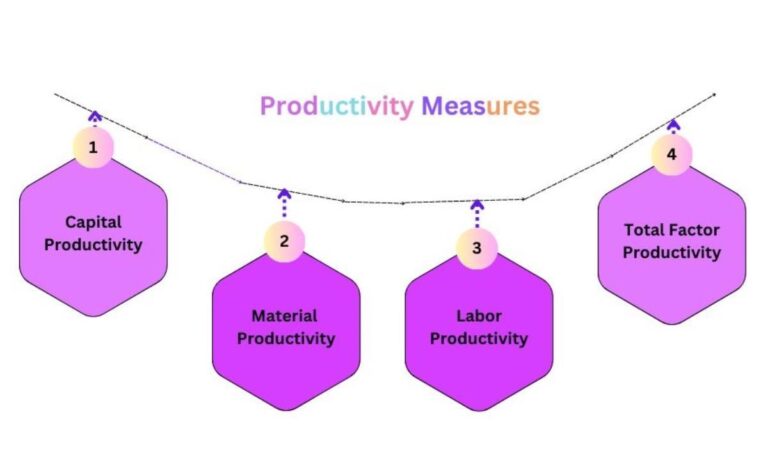The United Kingdom’s economic landscape is marked by notable disparities in productivity across its regions, a phenomenon that has significant implications for growth and policy-making. In its latest report, the National Institute of Economic and Social Research (NIESR) delves into these variations, offering fresh insights into the factors driving productivity differences from the bustling financial centers in London to the industrial hubs of the North. This analysis sheds light on the challenges and opportunities facing different parts of the UK economy, providing a vital resource for policymakers, businesses, and economists aiming to bridge the productivity gap and foster more balanced regional development.
Regional Disparities and Economic Drivers Shaping Productivity in the UK
Economic productivity in the UK is far from uniform, with significant regional disparities shaped by a complex interplay of industrial composition, investment levels, and workforce skills. London and the South East continue to lead in output per worker, bolstered by thriving sectors such as finance, technology, and professional services. Meanwhile, regions in the North and Midlands face challenges due to reliance on traditional manufacturing and lower rates of investment in innovation. These differences are compounded by varying access to infrastructure and educational opportunities, which further widen the productivity gap.
Key economic drivers influencing regional productivity include:
- Sectoral Specialisation: High-value industries like digital services elevate productivity in metropolitan areas.
- Capital Investment: Regions attracting more foreign and domestic investment display stronger output growth.
- Human Capital: Skilled labour markets are critical for sustaining productivity gains, particularly in knowledge-intensive sectors.
- Infrastructure Quality: Transport and digital connectivity vary drastically, impacting business efficiency and access to markets.
| Region | Average Productivity Index | Dominant Sector |
|---|---|---|
| London | 115 | Financial Services |
| North West | 85 | Advanced Manufacturing |
| Midlands | 80 | Engineering |
| South West | 90 | Creative Industries |
| Scotland | 78 | Oil & Gas |
Sector-Specific Challenges Impacting Growth Across Different Areas
Across the United Kingdom, variations in productivity often trace back to unique hurdles faced by key industries. For example, the manufacturing sector grapples with supply chain disruptions and the growing need for automation, slowing down output improvements despite technological advances. Meanwhile, the services industry faces labor shortages and rising operational costs, particularly in regions where wage inflation outpaces investment in skills development. Agriculture, traditionally a stronghold in some rural communities, encounters challenges tied to climate change and fluctuating international trade policies, which restrict growth potential and long-term stability.
These sector-specific obstacles generate a complex landscape that demands tailored policy responses. Some prevailing issues include:
- Infrastructure deficits: Affecting transport and digital connectivity, particularly in remote areas.
- Regulatory burdens: Differing regulations across regions impacting business agility and cross-border investments.
- Workforce skill gaps: Limits in specialized training hinder adaptation to evolving market needs.
| Sector | Primary Challenge | Impact on Growth |
|---|---|---|
| Manufacturing | Supply Chain Disruptions | Reduced output & innovation delays |
| Services | Labor Shortages | Limited service expansion |
| Agriculture | Climate Instability | Volatile production levels |
Policy Recommendations to Bridge Productivity Gaps and Foster Sustainable Development
Targeted investment in regional infrastructure and digital connectivity remains crucial to leveling the productivity landscape across the United Kingdom. Prioritizing transport networks,
To sustain these efforts, it is essential to foster collaboration between government, private sector, and academia. Implementing a framework that promotes knowledge exchange and coordinated policy execution can amplify productivity gains while preserving environmental integrity. The table below outlines key strategies alongside their expected impact on sustainable growth:
| Policy Action | Focus Area | Anticipated Impact |
|---|---|---|
| Infrastructure Modernization | Transport & Digital | Enhanced connectivity & reduced regional isolation |
| Green Technology Incentives | Energy & Environment | Lower emissions & long-term economic resilience |
| Skills Development Programs | Workforce Training | Increased productivity & better job alignment |
| Innovation Networks | Business & Academia | Accelerated tech adoption & new market creation |
Insights and Conclusions
As the National Institute of Economic and Social Research highlights, understanding the regional disparities in productivity across the United Kingdom remains crucial for shaping effective economic policies. Addressing these variations is not only key to fostering balanced growth but also essential for ensuring that all parts of the country can contribute to-and benefit from-the nation’s economic progress. Moving forward, policymakers and stakeholders will need to collaborate closely, leveraging data-driven insights to bridge gaps and unlock the full potential of the UK’s diverse regions.




